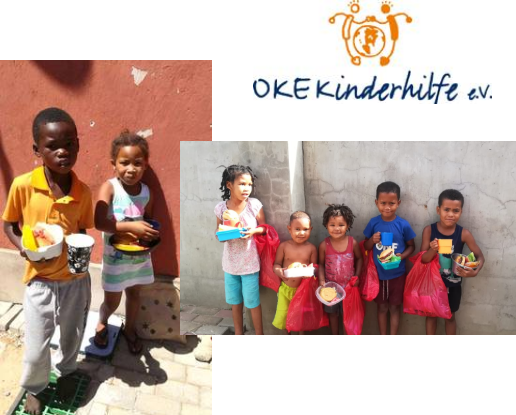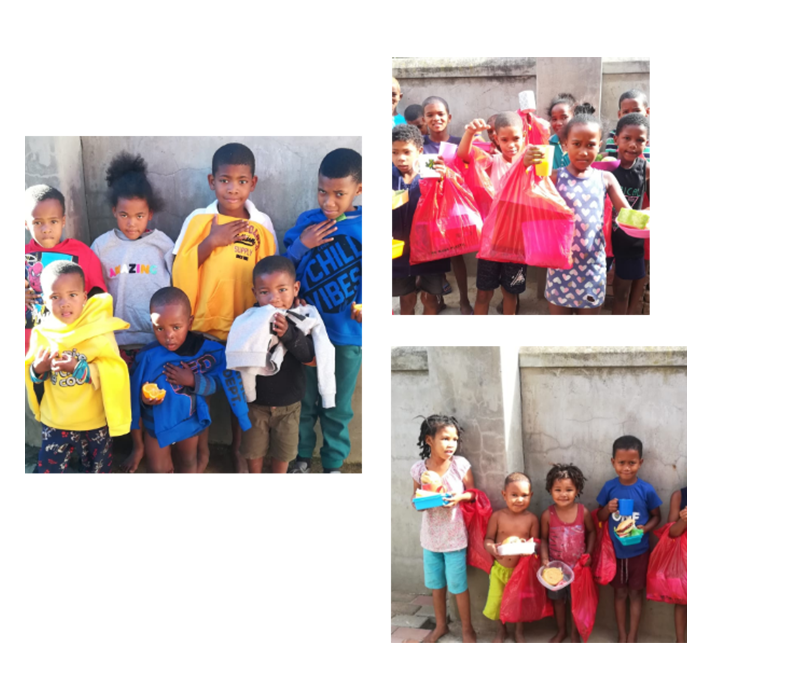The OKE Group is a strong community. Our employees are committed to helping children who come into the world with poor prospects on education and the social security that goes with it. With OKE Kinderhilfe (Children’s Aid), we collect and coordinate the many small donations in order to provide meaningful help on a larger scale. The money flows unabated into our projects without any administrative costs. Helping people to help themselves is our goal: through a good education and health, we give children the chance to lead a better life.
Even with the smallest donations we can achieve a lot!

Through a former employee, our owner Thomas Tillner found out that ‘Kindernothilfe’ (Children-in-Need charity organisation) was about to give up two homes in India and that a new sponsor was being sought. No sooner said than done – a few weeks later we founded the OKE Kinderhilfe e.V. and to date we have achieved a lot through donations from our employees.
In the years 2005 – 2020, we financed a boys’ and a girls’ home with a total of 150 children in the southern Indian region of Tamil Nadu. Through our help, the children had safe accommodation and received schooling, healthy meals and clothing.
All the children were orphans or half-orphans and, without our help, would have had to work in the fields instead. We made it possible for the boys and girls to be children and grow up in a protective environment.
During this time we also supported a school in South Africa, which was close to our factory in Cape Town. We supported the school with the financing of meals, school materials and later also with the reconstruction of the school.

A second project was located not far from our South African plant in Paarl.
The area has a high unemployment rate (families who largely depend on seasonal work in vineyards and orchards), gang crime, high levels of poverty and drug and alcohol abuse. Accordingly, the number of children in need is very high.
Here we finance a daily hot lunch for around 100 pre-school children.
We learned about the situation in Burkina Faso through our project manager when the rexx software was introduced. There, about 89 out of 1,000 children die before they are five years old. Then there are all those children who cannot develop properly because of diarrhoeal diseases, for example, and adults who cannot manage their work because they are ill. Four out of five people do not have access to a toilet. They have to defecate outside in the fields or in the bushes and are often unaware that by doing so, they are endangering the health of their village community. A large part of the diseases can be prevented through the construction of sanitary facilities and education on hygiene.
Therefore, since 2022, we have been promoting the construction of sustainable compost latrines and the installation of hand washing facilities for poverty-stricken families in Samba in a pilot project. In addition, people receive hygiene and health training so the project has a sustainable effect. A special added value is also provided by the consistently local construction of the compost latrines: all materials such as concrete slabs, bricks, iron, sheet metal, metal doors or individual components of the handwashing facilities are sourced directly in Samba from local small businesses. This also creates a high level of identification with the building!
A second part of this project deals with the training of girls and young women to become plumbers. The need for well-trained female plumbers is great in Burkina Faso, but there are hardly any training opportunities in this sector. The few apprenticeships are not affordable for the majority of the population.
There is a great need for plumbers, especially in the public drinking water, sewage and sanitation sectors. This is because the infrastructure is insufficiently distributed and the existing one is so poor that in many areas it tends to even favour the spread of waterborne diseases. Furthermore, the supply of safe and clean drinking water is not guaranteed at all in many regions of Burkina Faso.
By completing their training as plumbers, the graduates can gain a foothold in the local labour market and build a professional future for themselves. They support their families and act as influencers in their community:
They create awareness for preventive health and hygiene measures.